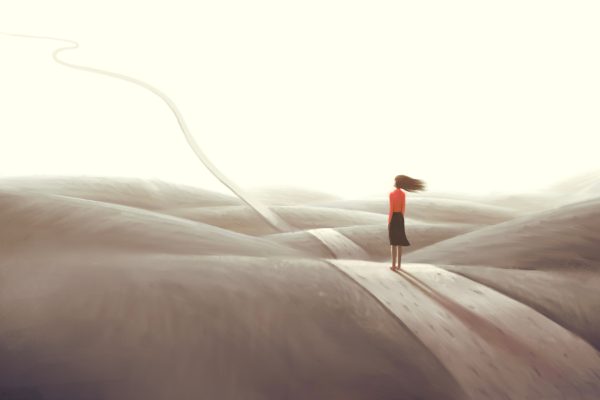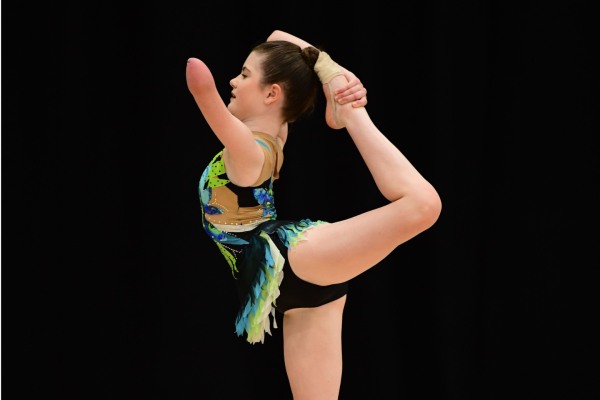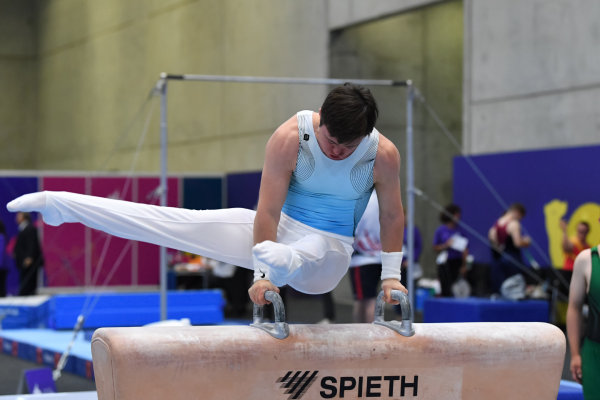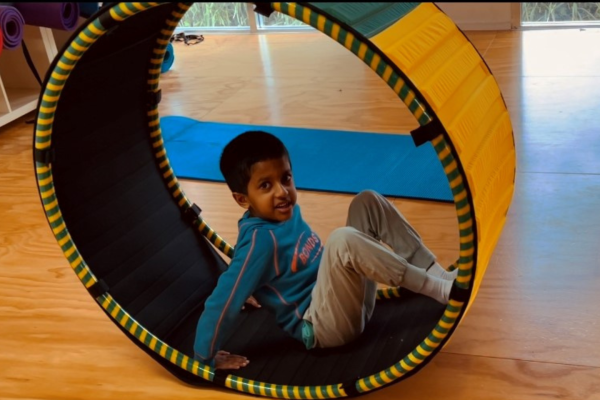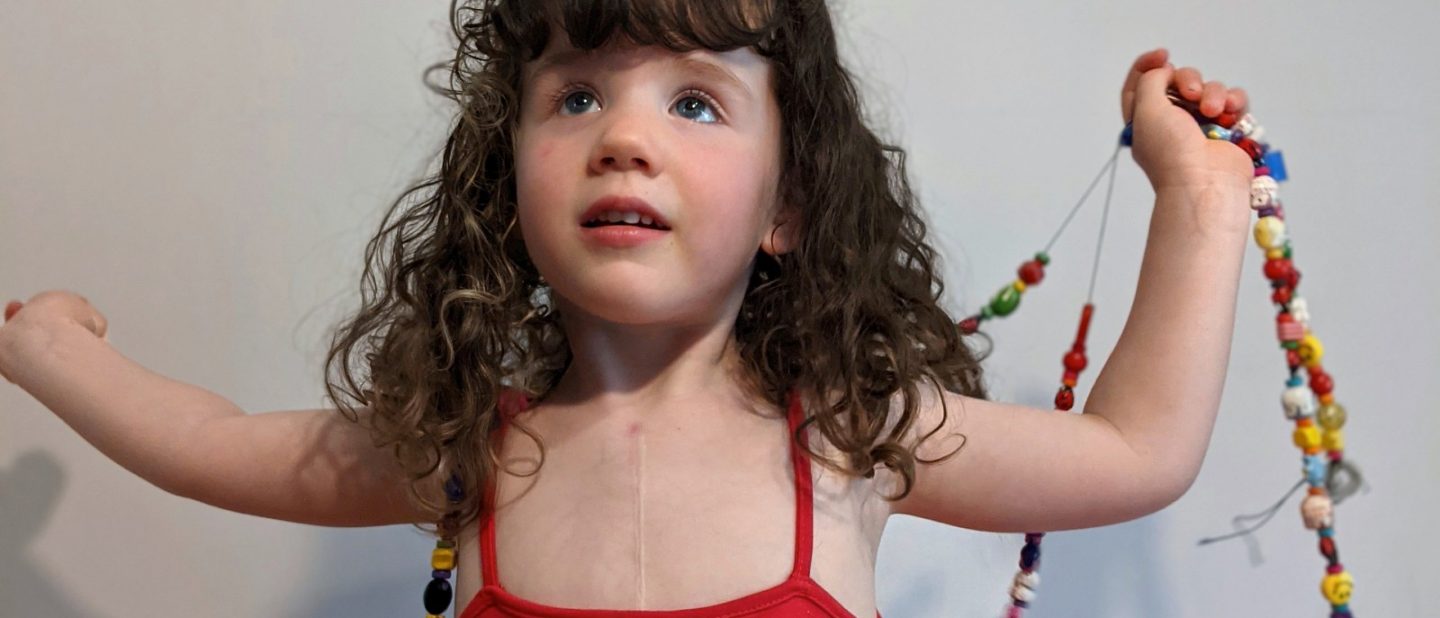
Living with heart disease
By Rachel Williams
February 14 is HeartKids Sweetheart Day – raising funds and much-needed awareness of congenital and childhood-acquired heart disease.
When one of your miracle babies is diagnosed with a major heart condition in-utero, and then needs major surgery during the middle of a global pandemic, it’s an understatement to say the journey of parenthood has been an emotional rollercoaster.
For Rebecca Fitzgerald and husband Mitchell the last two and a half years have been marked by stress but touched by hope with the arrival and survival of their much-longed-for daughter, Audrey.
Rebecca and Mitchell, from Belair in South Australia, had struggled to conceive and five years ago were thrilled to welcome a healthy, happy, typical young boy, Declan, born after extensive IVF.
They were then overjoyed to discover they were pregnant, again via IVF, two years later.
But Audrey’s pregnancy was far from normal. At 20 weeks they were told their baby had significant issues with its heart and they were encouraged to undergo an amniocentesis to gain a clearer picture.
“Having gone through IVF for both kids they were like miracles to us so we didn’t want to take the risk of an amniocentesis because the 1/200 chance of miscarriage was too much of a risk for us,” Rebecca remembers.
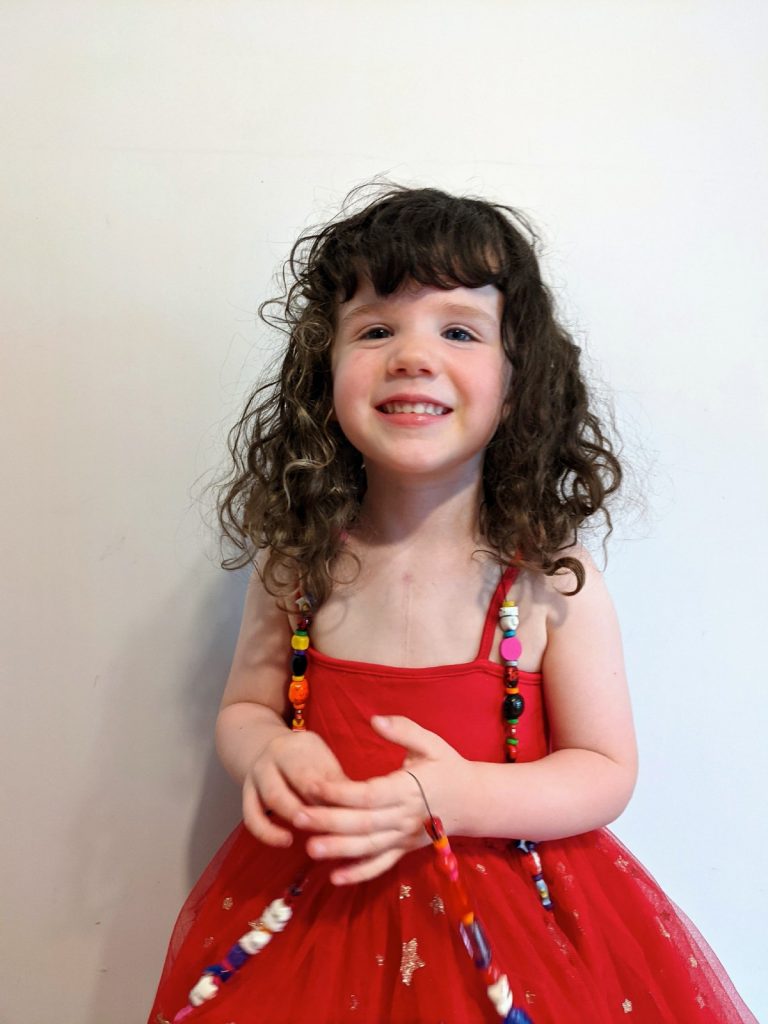
“We would have found out if there were more chromosomal abnormalities that could have been associated with the heart condition, but we knew we would love her when she comes out, however she comes out.”
Other scans and tests provided a diagnosis of Tetralogy of Fallot, which is a rare condition caused by a combination of four heart defects – Audrey would be born with a hole in the heart, an overriding aorta, stenosis of the pulmonary artery and a thickening of the right wall of the heart.
“The doctor showed us an image of a normal heart compared to what Audrey’s heart looked like and I didn’t know whether I’d be giving birth to a live child or not. I burst into tears and Mitchell was as white as a ghost like he was about to faint.
“Doctors say it’s one of the better heart conditions to have but all we hear is ‘major heart condition’.
“Mitchell has a congenital heart defect – Coarctation of the aorta, which is a narrowing of the large blood vessel that leads from the heart – but we did all the screening genetically which took five months and it turned out that Audrey’s condition was not at all related to her dad’s.”
Audrey was born a “beautiful, plump, pink, gorgeous baby” who didn’t need to spend much time in the NICU nor be sent to Victoria for emergency surgery immediately.
Her first surgery was at six months of age in Melbourne.
“We had her surgery date moved three times which was challenging because we had a nearly three year old preparing for his birthday and trying to live a normal life,” Rebecca recalls.
“With the help of the Travel Assistance Scheme we eventually flew to Melbourne and paid for my mum and Declan to come with us so we could stay together and have as much of a normal life as possible.
“She had a 7-8 hour surgery to repair the hole in her heart and widen the pulmonary artery and did really well.”
Her second surgery to remove scar tissue was deemed necessary before she turned two. But it would fall due as Victoria was crippled by COVID-19.
“It sort of came out of the blue for me because she was running and playing and seemed so fine but it had to happen in a six month window. We were planning to leave on a Sunday and on the Thursday before, COVID really hit. We were told to still come but a few hours later they said it was postponed.” Eventually the surgery was rescheduled for May but only Rebecca could travel with Audrey because of hospital visitor number restrictions associated with the pandemic.
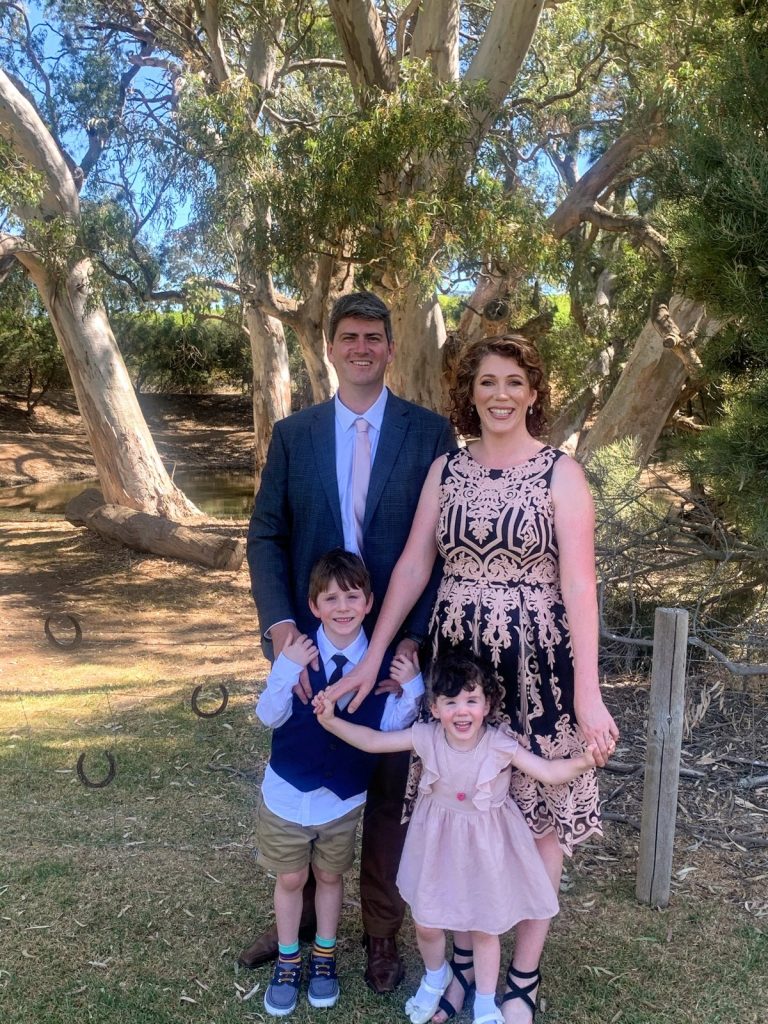
“Everyone says that 2020 was a hard year but imagine having open heart surgery in a state crippled by COVID and being split from your family for seven weeks,” Rebecca reflects.
Thankfully, Audrey’s surgery was a success.
Rebecca says her family wouldn’t have coped as well as they have if it hadn’t been for the help of Heart Kids.
“You sometimes feel guilty about getting overwhelmed but they have been amazing. They’ve checked in with the family to help us navigate our new normal.
“I love how they promote their heart beads and bracelets so that you can track and create a tangible record of all the tests and medical procedures you need to have as a Heart Kid.
“The Heart Beads really help me take it all in and process it and understand it’s okay to be upset and overwhelmed.”
Audrey requires an electrocardiogram every three months to ensure her health remains on track.
“As a parent you think your child is doing well because she is growing taller and bigger and really thriving but you don’t know what is happening inside
your child’s heart. She is so vivacious and cheeky and you probably wouldn’t tell she had a heart condition if you didn’t know.
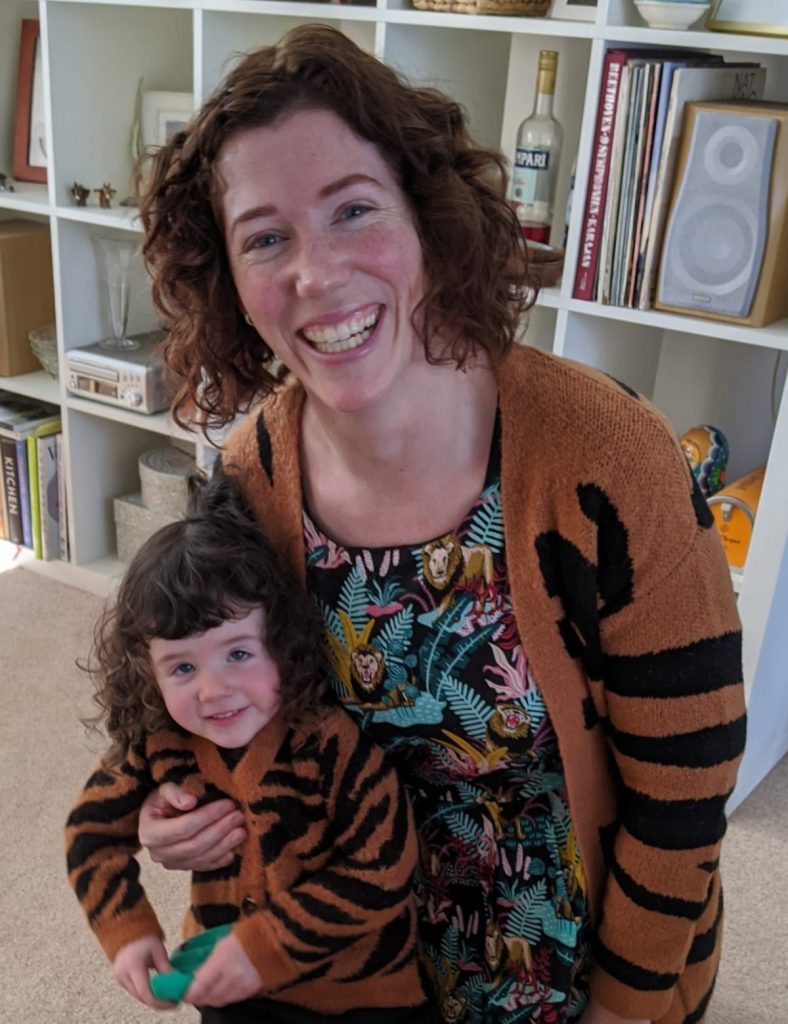

“People ask ‘Is she fixed?’ I wish! We say she’s beautifully repaired at the moment but there will be more surgeries in the future because her heart needs to grow with her.”
WHAT IS CONGENITAL HEART DISEASE?
Congenital heart disease is the biggest killer of babies under one year old with four lives lost across the country every week.
The sad statistic is provided by Dianna Crisp, the Digital Strategy and Marketing Manager of HeartKids, an organisation offering support to people with congenital or childhood-acquired heart disease from diagnosis through to adulthood.
“There are over 65,000 Australian babies, children and adults living with congenital heart defects and heart disease acquired during childhood,” Dianna says.
“Eight babies are born with CHD in Australia every day, that’s 1 every 3 hours. CHD does not discriminate, it can occur at any time even if there is no history of heart disease in the family.”
While there is no cure, Dianna says that due to advancements in medical technology and procedures more children are living into adulthood.
HeartKids has invested over $3 million worth of funds into a number of research projects and as part of the National Action Plan for Childhood Heart Disease, the Commonwealth Government is investing $18 million into six research projects targeting the prevention of neurodevelopmental and mental health complications, understanding the impact of prenatal and postnatal factors affecting the health of children born with CHD and their families, and exploring the role of exercise and increased activity in reducing the impact of CHD.
Dianna says the impact on those living with or caring for someone with CHD is immense.
“It can be a stressful and isolating experience for families as their world changes. Life can change so quickly and their dreams of parenthood can be very different from the reality of what happens. Having to learn medical jargon and having very different milestones for their children becomes the norm.
“It is not the same for every family, however the financial and psychological demands of caring for people with CHD can affect family systems greatly. Many suffer from PTSD, anxiety, depression, financial hardships and even marriage breakdowns.
“Depending on their condition, those with CHD may not be able to take part in physical activities and peer-to-peer activities like school camps.”
HeartKids offer peer to peer non- clinical support and also assists by providing emergency care bags, food parcels, some financial assistance and specific medical equipment when required.
“We connect families together so they feel less alone in their journey and provide information so they can better understand the journey ahead. In the acute phase of treatment, we want to smooth out the bumps in the road as much as possible, as the ride can be rough enough without all the usual day to day worries. It really is an emotional rollercoaster,” Dianna says.
“We have support coordinators in all major Children’s hospitals (COVID-19 permitting) and provide in-community support especially when families arrive home from hospital and effectively are on their own.”
HeartKids organises a fundraiser in February to coincide with Valentines Day, encouraging people to donate or sell bracelets to help fund its assistance programmes which include a support help line – 1800 432 785.
FOR MORE INFO: HEARTKIDS.ORG.AU SWEETHEARTDAY.ORG.AU




